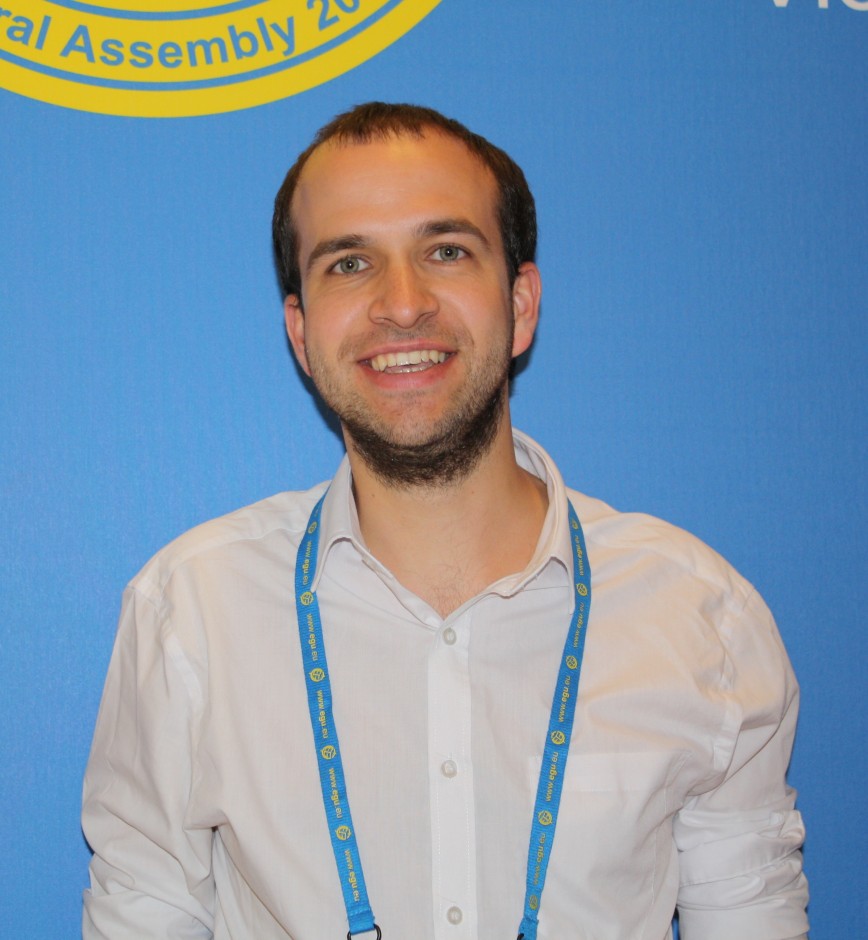Geology for Global Development (GfGD) is a new UK organisation. Its vision is to inspire students and recent graduates in the geosciences to use their knowledge of the Earth to fight poverty and improve lives. Many geoscientists work on issues such as water resources, energy supply, mining, infrastructure, natural hazards and climate change. Their knowledge of this broad range of subjects mean they can make a significant contribution to global, sustainable development. Joel Gill, the founding director of GfGD, was speaking in the geo-ethics session on Thursday afternoon at the EGU.
What prompted you to set up GfGD to begin with?
“I’ve done a little bit of work in developing countries and through that I’ve recognised the real, positive contribution that geologists can make to international development. Looking back through my training I saw a lack of technical training and the soft skills that were essential to do that work effectively. I learnt the hard way that I needed more than a geological hammer and a geological map to do the work. I needed to learn how to communicate cross-culturally, how to engage local communities in what we were doing. The organisation was established in order to give young geoscientists that opportunity to develop those skills and get the experience so that they could make a significant contribution to international development.”
What has GfGD been doing so far?
“So far we’ve established four university groups in Cambridge, Leeds, Leicester and University College London. They’ve organised a number of seminars for students to come and think about topics they wouldn’t get through their traditional university disciplines. We’ve also been involved in some advocacy, lobbying the government to promote the role of geoscience in international development. We’ve started to develop some resources that can be used by small NGOs that maybe don’t have access to a geologist. There’s also a blog for students to get involved in science communication and put across their work.”
How have you found your experience at EGU? Are people receptive to discussions on these topics?
“It’s been a real privilege to be at EGU and have the opportunity to put across the work of Geology for Global Development through one of the sessions. I’ve had a number of chats through the week with people from different backgrounds, different ages and different points in their career who have a real interest in seeing better quality geoscience within development and thinking about how we get that across. It’s also been challenging listening to some of the conversations from people working in the field and where they think the problems lie compared to where I think the problems lie. It’s been a mixed bag.”
Finally, what are your hopes for GfGD in the longer term?
“We want to establish ourselves as a registered charity and raise our profile through establishing more university groups. We hope to change the face of geoscience education in the UK by bringing in more examples from developing situations for lecturers to use and by starting more interdisciplinary conversations where geologists talk to social scientists and engineers. We also hope to establish placements and a bursary scheme so that young geoscientists have the opportunity to go overseas and get involved with local institutions, NGOs and government surveys who are there longer term so that they are then equipped to continue making valuable contributions throughout their careers.”
More information about GfGD is available on their website and their blog. Joel would also love to hear from anyone at a UK university who is interested in establishing a university group.
By Tim Middleton, University of Cambridge


